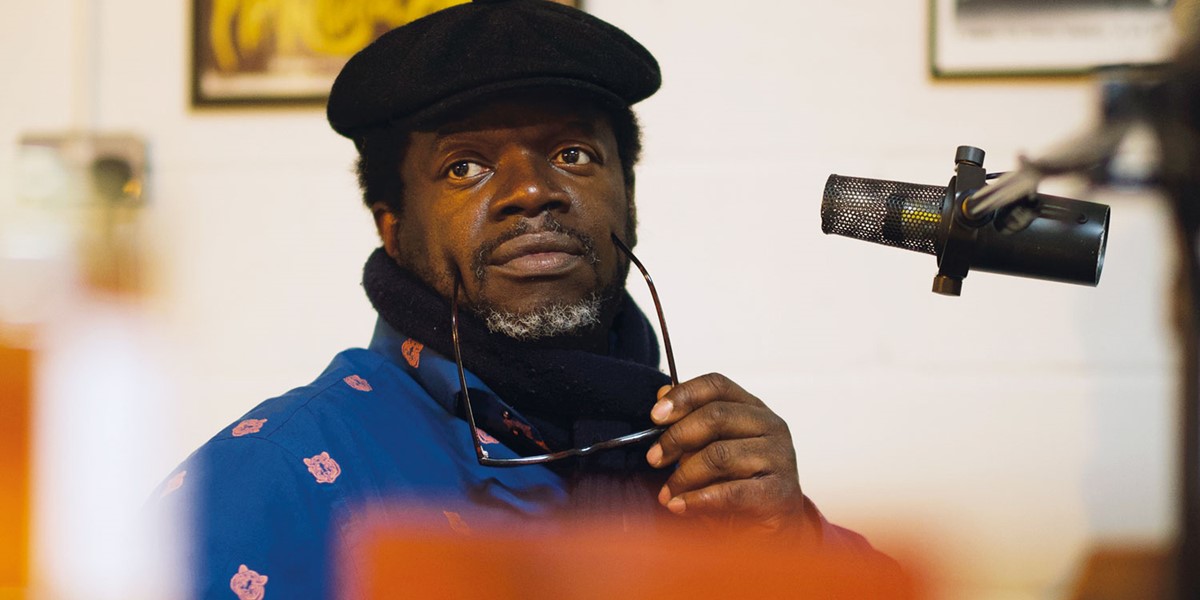Thursday, April 4, 2024
Fireside Stories with Dele Sosimi: “Fela was a radical who taught us about radicality. I still miss him”
Dele Sosimi spent the 80s globetrotting with Fela, even taking the reins of his 20-piece band, bringing joy and peace to Lagos’ chaotic commune where they lived, played and partied

Dele Sosimi (photo: Robert Humm)
Dele Sosimi’s debut album was called Turbulent Times for good reason. He was just 12 when his father, a banker, was assassinated in 1975, purportedly by those he was investigating for embezzlement. Born in London where his parents were studying, Dele was moved back to Lagos with them aged four, later becoming friends with Femi Kuti, eldest son of Fela Aníkúlápó Kuti — the Pan-Africanist composer, musician and founder of Afrobeat whose activism against government corruption set him on a collision course with the Nigerian authorities. Enraged by his ridiculing of them on his 1977 album Zombie, soldiers burnt down Fela’s commune, Kalakuta Republic – with Fela’s mother sustaining injuries that ultimately led to her death – and closed his nightclub-cum-performance venue, the Shrine.
“‘Your dad died on duty, trying to make the country better,’ Fela told me when I went to his house one day with Femi after school. ‘And I will fight for your family, once I win my own court case against the government,’” Dele relates this to me, now back in London, where he’s preparing for a series of concerts and the release of his new album, The Confluence.
“Femi and I were members of our high school band and Fela gave us access to his backline. I wanted to join Fela’s band, but he told me to finish my exams first. Even so, I’d still go to the (reopened) Shrine on a Friday and stay through ’til Sunday. Fela would come on stage just after midnight and play until 5am.”
“I saw some great parties there, too. Fela loved to party and the Shrine was the only place to do it. People like Roy Ayers would come over to play a gig at the US embassy and want to party afterwards, but everywhere in Lagos closed at 10pm.” Everywhere except the Shrine, which Fela had declared a state independent from Nigeria.
In 1979, just 16, Dele finally joined Fela’s band, Egypt 80, playing rhythm keyboard in Lagos and on tour around the world. Dele became tasked with keeping the band in check. “Nigeria is hard and some of the musicians were looking for opportunities to live elsewhere. Often, the younger ones would meet a girl, in Europe or America, fall in love and sneak off to live with them. Once back in Nigeria, Dele would train new recruits to replace the musicians they’d lost. “We’d try to get back to Lagos for Tuesday, so I had until Friday night, when gigs started, to get them ‘Shrine ready.’ It was only ever the males who left though, never women — mainly because they were all Fela’s wives!”
Though Fela’s sexual appetite was legendary, the reason for his polygamy wasn’t just libido. After the attack on the Shrine rendered many of the band homeless, Fela married 27 of his female backing singers and dancers, collectively called The Queens. This enabled them to live, within Nigerian law, under his protection. That’s not to say he wasn’t enjoying his conjugal rights, too – but it was a consensual arrangement.
When Fela was imprisoned in 1984 – given five years for (possibly politically motivated) currency smuggling charges – Femi took over the band and Dele became musical director.
“If Fela wasn’t going to be with us, we needed to up our game to still attract people to the Shrine each weekend. We instilled discipline in the band and ran everything in a professional way. [Femi] even ban[ned] the smoking of weed at the Shrine, so not to give authorities another excuse to shut us down.”
Fela was released after two years, following international pressure by the likes of Amnesty International, and supporters such as Herbie Hancock and David Byrne. But when he came back, it was time for Dele and Femi to leave.
“We’d held Egypt 80 together while Fela was away. Everything was running smoothly. But when he came back, he didn’t have the same discipline. Rehearsals started at 3pm but there we were, still waiting for him at 11pm. He’d been sleeping with women all day and was high as a kite. We were disappointed. Fela [had been] on the verge of conquering the world.”
Dele and Femi left to form their own band, Positive Force, playing at events such as the Montreux and North Sea Jazz festivals. Since then, Dele has recorded and performed both solo and collaboratively with major artists, in Afrobeat and other genres. He’s also become a teacher, lecturing at London’s Trinity Laban Conservatoire, Cardiff University and BIMM Music Institute in Bristol, where his students call him ‘Professor Afrobeat’.
But Dele still has respect and gratitude for what Fela – who died in 1997 – taught him about life, music and fighting injustice. “Fela was a radical who taught us about radicality. I still miss him.”
As told by Russell Higham
This article originally appeared in the May 2024 issue of Songlines. Never miss an issue – subscribe to Songlines today

